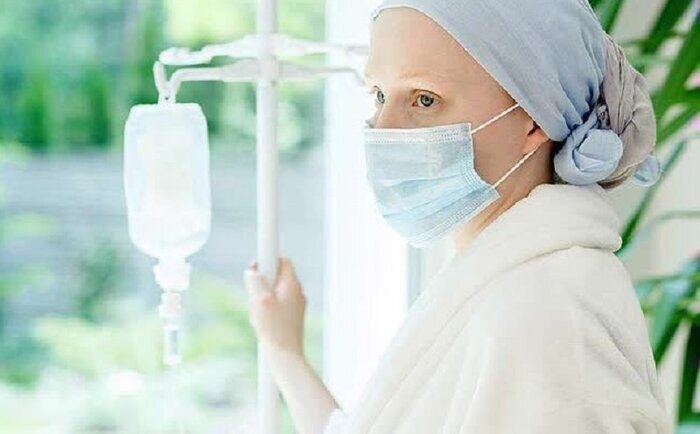Iran world’s third producer of ‘ibrutinib’ anti-cancer drug

TEHRAN- An Iranian knowledge-based company has succeeded in producing ‘ibrutinib’ which is used to treat various blood cancers, making the country the third producer of the medication in the world.
Now Iran, India, and China are the only three countries in the world that have the high-tech knowledge to produce ibrutinib and necessary raw material, IRNA reported.
Ibrutinib is a type of targeted therapy called a kinase inhibitor. A kinase is an enzyme that promotes cell growth. There are many types of kinases, which control different phases of cell growth.
This medication interferes with the function of Bruton's tyrosine kinase (BTK), which is found in excess on cancerous B cells. By interfering with BTK, ibrutinib interferes with the growth of the cancerous B cells.
Beyond its role in B cell biology, BTK functions have been explored in the maturation, trafficking, and function of myeloid cells, T cells, and natural killer cells.
It was discovered to also target the inducible tyrosine kinase (ITK) and the epithelial growth factor receptor.
Rapid binding and high selectivity of ibrutinib reduce the risk of sustained systemic exposures, therefore making it the drug of choice with a well-tolerated dosing regimen as compared to current therapeutic options for the above diseases.
Ibrutinib is highly effective in the treatment of chronic lymphocytic leukemia (CLL), mantle cell lymphoma, and Waldenstrom’s macroglobulinemia.
The biggest advantage of this drug is its end price. A dose of 420 grams of medicine, which is used to produce 28 of this medicine, costs nearly 6,500 euros.
However, the raw material production for manufacturing this drug in the country is very affordable in terms of strategy, price, and quality.
After receiving international approval, this product will be exported after supplying the domestic market.
Also, exporting the drug will bring in foreign currency for the country and have a very high added value.
Cancer therapy
On March 17, A cancer treatment center, which is said to be the most advanced of its kind in the region, was officially inaugurated by President Ebrahim Raisi.
Some 12 trillion rials (about $24 million) has been spent on building the center which is specialized for diagnosing and treating stage 3 cancers.
Stage 3 cancer is considered advanced. In this stage, the tumor may have grown to a specific size, cancer may consist of multiple tumors, and/or cancer may have spread to adjacent lymph nodes, organs, or tissue.
In some cases, stage 3 cancers may be considered metastatic cancers, meaning they may have spread beyond their organ of origin.
Many stage 3 cancers have multiple subcategories, usually designated as stages 3A, 3B, and 3C. These subcategories are often determined by the size of the tumors, whether multiple tumors are present, and the degree to which cancer has spread locally.
For the first time in West Asia, some ultra-modern devices such as linear accelerator, CyberKnife, tomotherapy, and CT simulator have been used in this cancer treatment center.
The CyberKnife system is a non-invasive, robotic delivery system for radiation therapy that treats some cancerous and noncancerous tumors and other conditions.
Tomotherapy is a type of therapy in which radiation is aimed at a tumor from many different directions.
The Ministry of Health has launched a plan aimed at preventing the three most common cancers among women, namely breast, colorectal, and cervical cancers, Ali Qanbari-Motlaq, a health ministry official, said in February.
These cancers are the most preventable cancers and at the same time they account for 40 percent of cancers among women and 25 percent of cancers both among men and women, ISNA quoted Qanbari-Motlaq as saying.
The pilot phase of the plan was carried out in 2016 and 2017, he said, adding that in 2018, the development plan of the first phase started.
He pointed out that almost 150,000 people in the country are diagnosed with cancer every year.
With the support of the World Health Organization, the national cancer control program has been developed, which sets out the Ministry of Health’s roadmap up to the Iranian calendar year 1404 (March 2025-March 2026).
The purpose of the program is to reduce cancer prevalence and mortality while improving the quality of patients’ lives, which can serve as a model for other countries, especially in the Eastern Mediterranean region.
The program includes two important documents, namely, “development of national cancer care network” and “development of cancer human resources”, which resulted in the establishment of the early diagnostic centers.
MT/MG
Leave a Comment